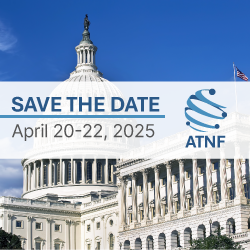
The Third session of the Meeting of the Parties (MOP3) to the Protocol to Eliminate Illicit Trade in Tobacco Products concluded Feb. 15 with new commitments to combat the black market.
“Our meeting this week took important decisions on tobacco tracking-and-tracing systems and approved a road map to conduct evidence-based research on illicit trade,” said Adriana Blanco Marquizo, who as head of the Secretariat of WHO Framework Convention on Tobacco Control also oversees the Protocol.
“We also agreed on improvements for the reporting system our Parties use, which will strengthen the quality of data on implementation of the Protocol that can help guide future tobacco control efforts,” she said in a statement.
The MOP is the governing body of the Protocol, which is an international treaty that entered into force in 2018 and aims to eliminate illicit trade in tobacco products through a package of measures to be taken by countries acting in cooperation with one another.
“It is a global solution to a global problem,” said Blanco Marquizo.
Illicit trade accounts for about 11 percent of total global tobacco trade, and its elimination could increase global tax revenues by an estimated $47.4 billion annually.
Representatives from 56 Parties to the Protocol and 27 non-Party States gathered in Panama City, Feb.12-14 to tackle a range of issues from progress on implementation of the treaty to sustainable financing for tobacco control.
MOP3 also adopted the Panama Declaration that calls on national governments to be alert for what it described industry campaign to undermine efforts to eliminate illicit trade in tobacco products.
The Panama Declaration also emphasized the need for effective action to prevent and combat illicit trade in tobacco products, which requires a comprehensive international approach to—and close cooperation on—all aspects of illicit trade in tobacco, tobacco products and tobacco manufacturing equipment.
Contradicting the observations of some tobacco grower representatives and consumer activists, the WHO said MOP3 was open to the media.





